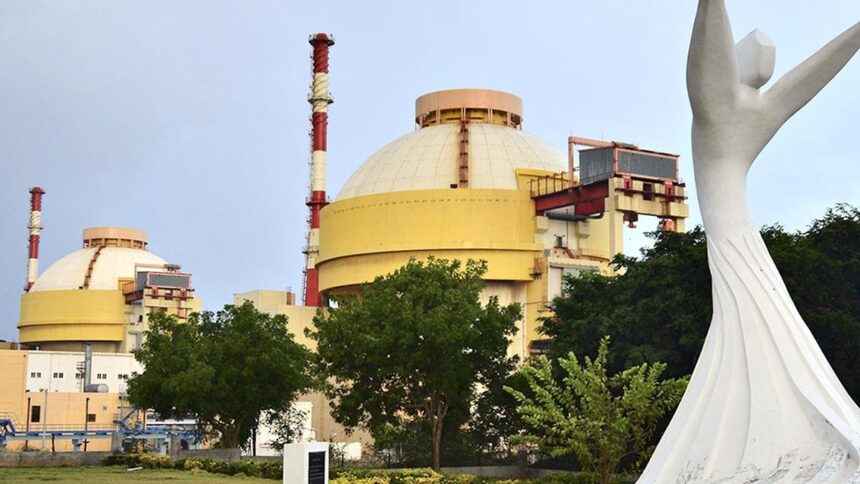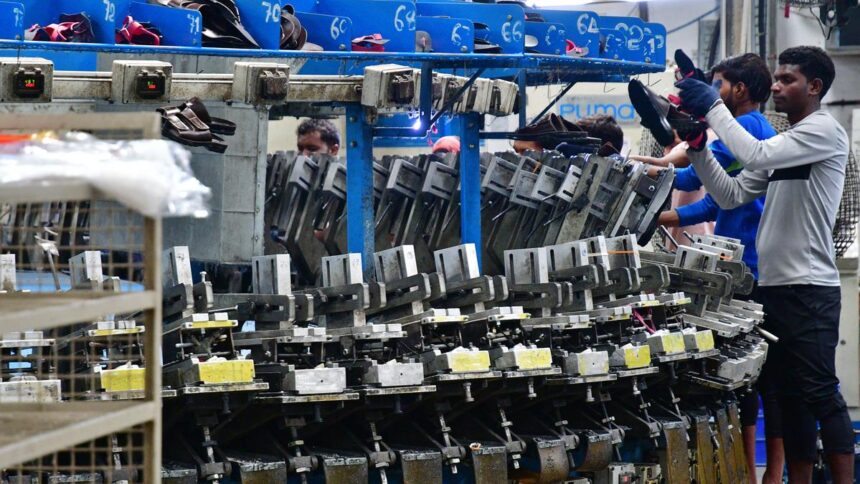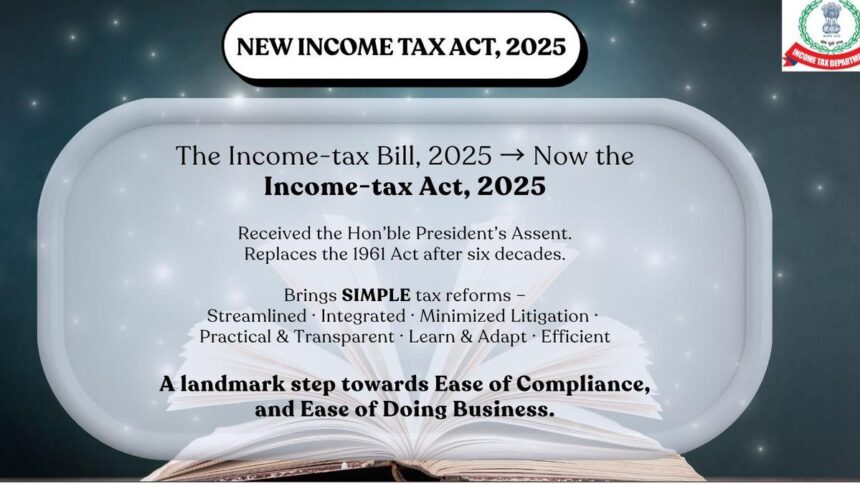
Reserve Bank of India Governor Sanjay Malhotra speaks during the FIBAC banking conference in Mumbai, on August 25, 2025.
| Photo Credit: Reuters
Should the tariffs imposed by U.S. President Donald Trump kick in, the Reserve Bank of India (RBI), like in the past, would step in and provide financial support to worst impacted sectors to tide over the crisis period, RBI Governor Sanjay Malhotra said on Monday (August 25, 2025) in Mumbai.
During the COVID, the RBI had provided moratorium on term loans and eased access to credit for MSMEs and virtually supported the economy through monetary policy.
“The 50% tariff is yet to kick in. Negotiations are on and we hope there will be minimal impact. As you know 45% [of exported items] are outside the tax net and of the remaining 55% there will be some potential impact on some of the sectors like Gem and Jewellery, Textiles, Auto Parts, Shrimps and MSMEs,” the Governor said while answering a question at the FIBAC annual conference organised by FICCI and Indian Banks’ Association (IBA).
“The government is looking into it. We in the part of RBI have been on an easing cycle. We had cut Repo rate by 100 bps to provide ample liquidity to the economy. Whatever support is required from us for the growth of the economy and including those of the sectors which are impacted more, if it so happens, we would not be found wanting in our job,” Mr Malhotra said.
To a question on internationalization of the Rupee, Mr Malhotra said “Its an important area on which the RBI has been working for many years and it is important for the country to develop trade in local currency. It cushions us from the volatility of foreign exchange.”
Stating that India currently has agreements with four countries including Maldives, Mauritius, Indonesia and UAE, he said “healthy trade is happening in local currency. On how it would pan out he said “its a slow process and would take years and decades to evolve to have trade in local currencies.”
In his address at the conference, Mr Malhotra stressed on the need to further strengthen the Banking Correspondents (BCs) network to achieve financial inclusion goals.
“Let us remember we have a responsibility to all the people of our country, almost two-thirds, of which resides in rural areas. While, we have provided banking access to almost all villages within a radius of 5 kilometres, there is scope to further enhance it.” he said.
“BCs are an effective channel for providing services in sparsely populated areas of our country. This channel needs to be strengthened to improve the quality, consistency and reach of financial services. Not only is there is a scope to augment them, but there is also a need to train them and expand the number of services they can provide. On one hand, this will make the BCs financially viable and sustainable; on the other hand, it will improve quality and reach of services,” he emphasized.
On the use of technology in the banking sector he said it has become the core engine for improving decision making and customer service, moving far beyond its traditional role of driving efficiency. Regulated entities need to accelerate its adoption as they strive to enhance credit and reduce costs, he pointed out.
“RBI too has adopted technology in all its functions. The Account Aggregator (AA) ecosystem is empowering customers with control over their financial data. ULI is making credit delivery seamless, making it truly transformative. We will further strengthen these platforms. We have implemented PRAVAAH platform for improving services to regulated entities. We will continue to embrace technology including AI and ML and expect our regulated entities too invest in it,” he said.
In conclusion he emphasized that both the regulator and regulated entities had common objectives.
“I would like to emphasise that while we might seem to be on opposite sides — with the regulated entities trying to accelerate growth and the regulators focusing on stability, we actually have the same objectives. We are in the same team with a shared vision and is no tussle between financial stability and growth. Financial stability and price stability do not inhibit growth. Far from it, they are essential for sustainable growth,” he stressed.
He also urged the industry to invest boldly and “champion the entrepreneurial spirit that defines our nation. At a time, when balance sheet of banks and corporates are at their best, they should come together and drive the animal spirits to create an investment cycle which is so important at this juncture,” he stated.
Published – August 25, 2025 03:42 pm IST


















